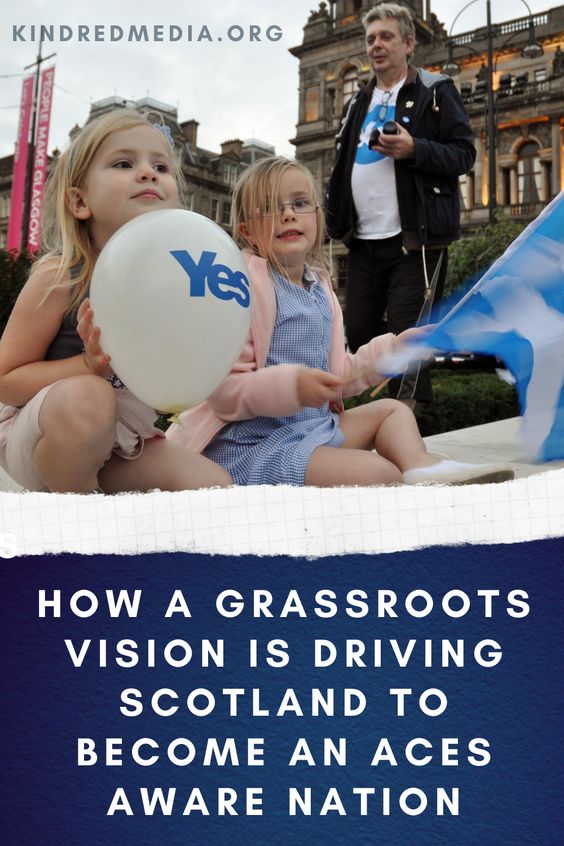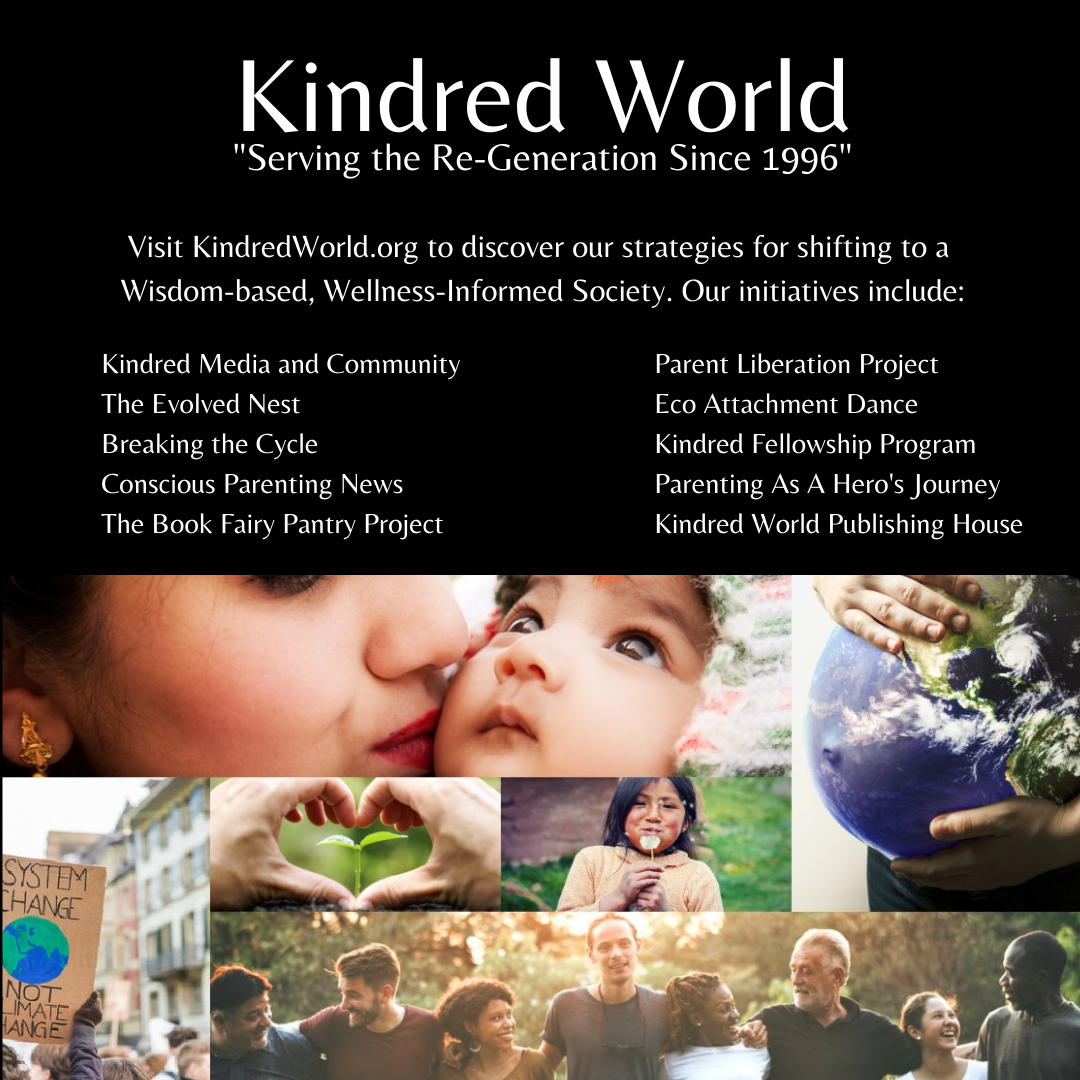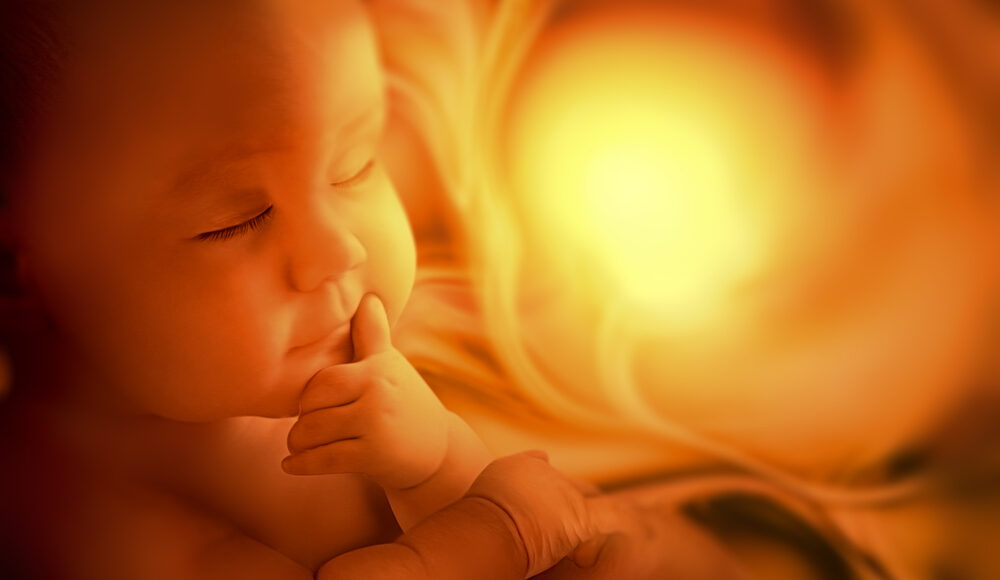Taking the Science Of Attachment To The Public
Why does our culture still have such a poor appreciation of the impact of childhood experiences? Suzanne Zeedyk reflects on ways that she believes scientists can be more effective in bringing the science of attachment to the public.
After more than a decade of working with the public, disseminating what I call the Science of Connection, I find myself often mulling over a question: Why does our culture still have such a poor appreciation of the impact of childhood experiences?
I write this piece while watching television coverage of war refugees streaming across the borders of Ukraine. These are children, pouring out of a European country now under bombing from its neighbour. The last time such scenes occurred, it was John Bowlby and his colleagues doing the writing. That was 80 years ago. Here we are again.

In between, there have been other wars in other parts of the world, with more children left scared, lonely and confused. These images are in no way unfamiliar. I take comfort from the fact that I am hearing the word ‘trauma’ spoken by newscasters, as they try to help viewers make sense of the quiet demeanour in children holding tight to their mothers’ hands. I also take comfort from the knowledge that there are schools already discussing how their nurture policies leave them well prepared to welcome Ukrainian children into their community. They have learned from their welcomes to children from other places the importance of attuned relationships in establishing a sense of safeness and belonging.
And yet… Here in Britain… When Wales recently passed a law making it illegal to smack children, many people wrote to the papers to decry this decision. They want to retain the right to physically assault children when their behaviour feels just too unmanageable. In English schools, there are young people being sent to isolation booths as punishment for disruptive behaviour or for repeated failures to bring pencils to class. In Scotland, 4-year-olds who have spent half their life in Covid chaos are being denied permission by some local authorities to defer the start of Primary 1, even though their parents have explained they cannot yet cope with large groups and formal learning. In Northern Ireland, punishment attacks are increasing, with paramilitary groups inflicting intentional mutilation on young people considered to have breached societal norms.
I regularly hear stories from adults who can’t find a drug treatment programme that explores childhood trauma or who continue to be ashamed of the intense homesickness they experienced at boarding school or who have undertaken therapy that never explored their adoption. I cannot get stroller manufacturers to be interested in how the science of infant brain development relates to the products they sell to parents at high prices. I meet prison officers who have had no training at all in how the human stress system functions and business managers who don’t realise that the way their staff members handle conflict will have been shaped by the way their family handled it. Parents repeatedly tell me they wish someone had explained how attachment works because that would have helped them to feel more confident in raising their child.
Yes, there are many things that cheer me. Scotland is in the midst of a grassroots ACE-aware movement that did not exist five years ago. Police Scotland takes domestic violence much more seriously these days. There are countless organisations throughout the UK seeking information on trauma-informed practice. There is a campaign underway to stop the cultural acceptance of children being sent away to boarding school as young as 8. There is a burgeoning understanding of the importance of play.
All of these shifts are celebratory, given how interminably slowly cultural wheels can turn. But it has been nearly a century since Bowlby and his colleagues began describing the emotional processes of childhood to parents and professionals alike. Since then, our knowledge has seen massive expansion. Scientists studying intersubjectivity and affective neuroscience and interoception and fetal origins and trauma and adverse childhood experiences and communicative musicality and early years economics have joined in. Authors and filmmakers and social influencers have worked hard to translate these discoveries into public understanding.
Our culture still seems to have a remarkably poor appreciation of the impact of emotional experiences in childhood. Why?
I have learned valuable lessons over the past decade that help me in answering that question. Here are three of them.
1. It is one thing to know this stuff. It is another thing to feel what it is like to know this stuff.
Empirical evidence does not, on its own, drive change. In fact, learning about the science of connection turns out to be a bit alarming. It becomes personal. You realise, when you really ‘get it’, that the way you treated your children had a biological impact on them. It is a discomforting surprise to realise that even the most ordinary of things will have left a physiological imprint: the age at which you sent them to school, singing nursery rhymes, car seats, cuddles, spending time on your phone, how you introduced the older child to the newborn sibling, using a behaviour chart, packing their teddy for a trip. Comprehending the significance of such decisions means you reconsider them. If you’d known this stuff earlier, would you have made different choices? If the answer is yes, well, it’s too late now.
People have feelings about the discoveries they make once they truly begin to ‘get’ the science of connection. Sometimes those are relief and affirmation, but more common, in my experience, are shame and guilt. People re-evaluate their self-perceptions. They wonder if they have caused harm they never intended. They spontaneously question whether they measure up to their own expectations. They ponder whether they still ‘count’ as a good parent or commendable professional. They reflect on what they experienced at the hands of their own parents, and they run straight into the guilt that inevitably comes with that.
These are big feelings. These are the questions you’re supposed to take away from therapy, not from a day’s training in brain development! It turns out that to reflect deeply on attachment processes, you need copious amounts of containment, courage and self-compassion.

2. Denial is useful. It protects you from uncomfortable truths. That’s what makes it dangerous.
Denial makes sense as a response to this information. When you have to confront something that’s uncomfortable, especially something about yourself, it is tricky to stay open and curious. It is easier to shut down. Turning away leaves your sense of self and the world intact. Denial is a perfectly human response to realisations that are uneasy. That’s what makes it dangerous.
James Robertson, one of the theorists working hard to change thinking in the 1930s, came to the same conclusion. He put it this way, in a seminal lecture he gave after three decades of effort1:
“It has to be acknowledged that the defence against hurt is not confined to professions. It is used by all human beings as a way of dealing with persistent threats to comfort, becoming deaf or bunkered as the situation requires.”
Robertson continued by asking us to face something uncomfortable about ourselves and our professional systems:
“Although there is everywhere goodwill and good intention towards children, with great resources of knowledge and understanding of their needs…the common defence against pain allows the acute awareness [of children’s distress] to be dulled, as by a tranquillizer.”
He is highlighting how easily we adults move into denial about children’s misery. That applies not only to our own children and to other people’s children, but also to the child we once were. The suffering of childhood can be too harsh to risk empathising with, so we turn away. That’s the central point of psychotherapy, is it not?
I have listened to many people frustrated and confused about why cultural and professional change does not happen faster, given the scientific evidence we now have regarding the importance of the early years. I get it. I’m frustrated and worried too.
What I know is that getting curious about how denial works has helped me immensely. I recognise the humanity in it – which leaves me better placed to be alert to its dangers, too.
3. Stories are the most effective vehicle of change. That’s because they speak to the heart.
So if evidence on its own isn’t good at driving change, what is? Answer: Stories.
We human beings are built for stories. Infant brains make sense of the world by organising the things that happen to them into a comprehensible order. In other words, they create a narrative. That means that stories are so fundamental to our nature that their form is written into our neurology. That is fascinating, is it not? Stories tell us what matters.
I find that I spend a lot of my time these days just telling stories. Real life stories about actual people, organisations and events. Some are inspiring, such as the school who describes the “transformation” that occurred when they replaced the usual phrase ‘challenging behaviour’ with ‘distressed behaviour’. Some are hopeful, such as the local authority who realised they were saving money by continuing to fund, rather than cut, their parent support programmes.

Some stories are uncomfortable because they allow you to see what a system overlooks, such as the young man in prison for drug offences who describes how the heroin takes away the emptiness he has felt all his life, ever since his mother left when he was 4 years-old, riding off on the back of a motorbike. Some are extremely distressing but brought vital policy change, such as the 1960s case of a little girl who bled to death as the stitches in her throat ripped because she could not stop crying for her parents, whom the hospital would not, at that time in history, allow in to visit her. Some stories provide simple practical ideas, such as the headteacher who purchased wrist bands for children who struggled at morning drop off; she encouraged their parents to “fill them with kisses” as a means of creating connection across the distance.
I have concluded that my primary duty as a scientist is to tell stories that make the science I love matter. I don’t want science to be scholarly play. I want it to ripple out of ivory towers and into the lives of people who deserve to share in its profound insights.
Perhaps one of the key reasons attachment and all the other science(s) of connection have not yet fulfilled their potential is that we scientists haven’t found enough ways to make them matter. We tend to cast them as information, directing their delivery to the mind. That’s the wrong target. The mind may marvel, but it can’t make things matter. Mattering is achieved by the heart. We need to think about how to frame our discoveries so that hearts can hear them.
About ACES, now called PACES
The Adverse Childhood Experiences Study and its initiatives, formally named ACES, has evolved to include Positive and Adverse Childhood Experiences and is now referred to as PACEs. Kindred uses both terms on this website. You can find amazing resources on the PACEs Connection website.
Take the ACEs Quiz to find your score here.
Read more stories on ACEs on Kindred.
Read the new study showing the Evolved Nest Buffers the Negative Effects of ACEs.
Discover more ACEs organizations and resources.
Trauma-Informed and Adverse Childhood Experiences, ACES
Reposted with permission from the UK website, Mind in Mind.


